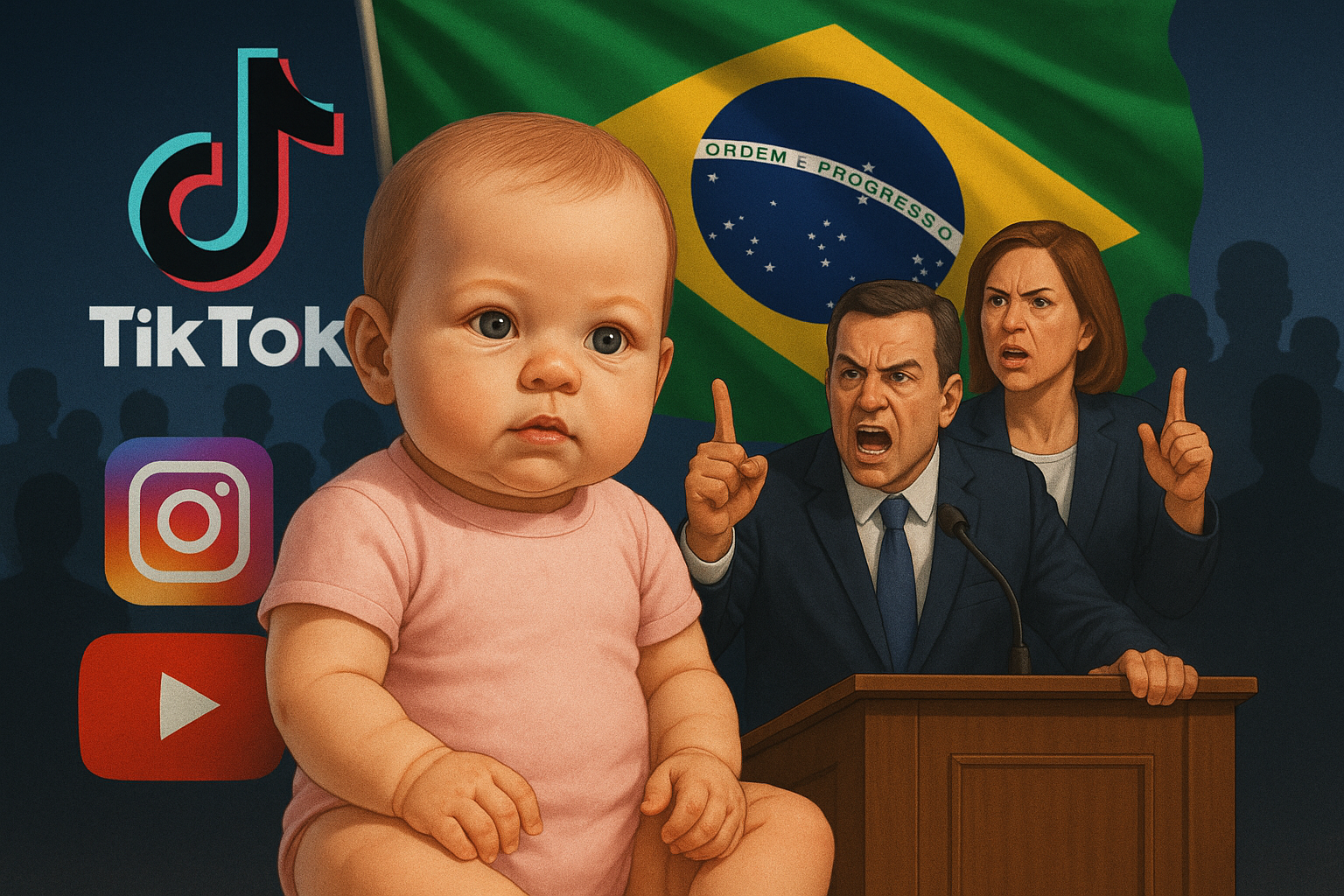Brazil’s Reborn Baby Doll Craze Welcome back to Taxtotech.com, PRPunjab Readers! The strange intersection of social media virality, politics, and tech regulation has created an unexpected storm in Brazil.
In early 2025, TikTok and Instagram exploded with viral videos showcasing “reborn baby dolls” — hyper-realistic dolls designed for collectors and therapy. But what began as a harmless trend quickly spiraled into national controversy, triggering lawmakers to introduce dozens of new bills targeting digital content, manufacturing, and even parenting rights.
Let’s break down how tech platforms can ignite global political firestorms overnight.
The Rise of Brazil’s Reborn Baby Doll Craze
- Hyper-realistic “reborn” dolls have long existed in niche communities.
- In early 2025, influencers on TikTok, Kwai, and YouTube Shorts began posting viral “day-in-the-life” videos featuring these dolls.
- Brazilian creators turned it into a massive online subculture with emotional storytelling, therapeutic narratives, and lifestyle content.
Example Viral Metrics:
| Platform | Top Reborn Doll Hashtag Views | Growth (Past 3 Months) |
|---|---|---|
| TikTok | 2.8 Billion views | +900% |
| Instagram Reels | 750 Million views | +400% |
| YouTube Shorts | 550 Million views | +300% |
From Viral to Controversial: The Moral Panic Erupts
Soon, conservative activists, religious groups, and parenting organizations began raising concerns:
- Allegations of “emotional manipulation”
- Accusations of promoting “false motherhood”
- Calls for banning hyper-realistic dolls as psychologically harmful
Brazilian Lawmakers’ Response:
- Over 30 bills have been proposed, including:
- Bans on sales to minors
- Age restrictions on online content
- Regulation of online marketplace ads
- Criminal penalties for “public indecency with reborn dolls”
Politician Carla Zambelli declared:
“This trend destabilizes the natural development of maternal instincts and misguides youth.”
Why the Panic? The Underlying Tech-Culture Dynamics
PRPunjab Readers, this backlash isn’t just about dolls—it’s about how social media virality collides with cultural conservatism and weak tech policy frameworks.
Core Drivers:
- Algorithmic amplification: TikTok’s AI-powered recommendation engine made niche content viral globally overnight.
- Generational divide: Younger audiences view reborn dolls as harmless, while older Brazilians see it as unnatural.
- Lack of clear policy: Brazil’s digital law still struggles to adapt to fast-emerging tech trends.
Similar Trends Worldwide: Global Moral Panics Triggered by Tech
| Country | Viral Tech Trend | Resulting Controversy |
|---|---|---|
| USA | AI-generated deepfake influencers | New federal legislation proposed |
| South Korea | Virtual K-pop idols | Mental health debates |
| India | Live-streamed mukbang eating shows | Health ministry guidelines |
| Brazil | Reborn baby dolls | Multiple legislative efforts underway |
Tech Companies’ Dilemma: Should They Regulate Creativity?
While Brazilian lawmakers demand stricter content controls, platforms like TikTok, Meta, and YouTube face a complex challenge:
- Protect creative freedom vs cultural sensitivities
- Avoid political targeting while preventing legitimate harm
- Monitor global trends vs regional norms
TikTok’s spokesperson responded:
“Our policies prohibit harmful or exploitative content, but positive community storytelling remains allowed within guidelines.”
Long-Term Implications for Tech & Content Regulation
Possible New Regulatory Models:
1️⃣ Age-Gated Content Algorithms
2️⃣ Context-Aware AI Moderation Tools
3️⃣ Culturally Adaptive Platform Guidelines
4️⃣ Digital Mental Health Labels (Similar to Nutrition Labels)
Tech Startups Rising in this Space:
| Startup | Specialization |
|---|---|
| Hive AI | Content moderation using computer vision |
| Spectrum Labs | Toxic behavior detection |
| ToxMod | Audio-based moderation for live-stream platforms |
FAQ
Q: Are reborn dolls illegal in Brazil now?
👉 Not yet. But legislation is moving quickly. Major bans or age restrictions could be passed soon.
Q: Why did TikTok fuel this so rapidly?
👉 The platform’s AI engine amplified highly engaging niche content without regional sensitivity checks.
Q: Could similar tech panics happen elsewhere?
👉 Absolutely. Any hyper-viral niche trend can spark localized backlash depending on cultural context.
Taxtotech Readers: Tech Virality Is Powerful—and Dangerous
This Brazilian story reminds us how tech platforms can transform niche hobbies into global flashpoints overnight. As algorithms outpace regulators, we enter dangerous territory where tech innovation constantly collides with society’s comfort zones.
Stay tuned at Taxtotech.com for deeper analysis of how tech platforms, social media trends, and government responses continue to shape global culture, markets, and law.
👉 Comment below: Should platforms be responsible for the unintended consequences of viral content?
👉 Share this article — you never know who’s watching what on TikTok today!












